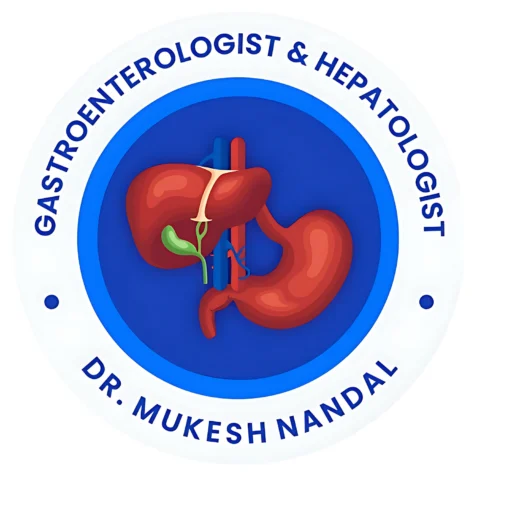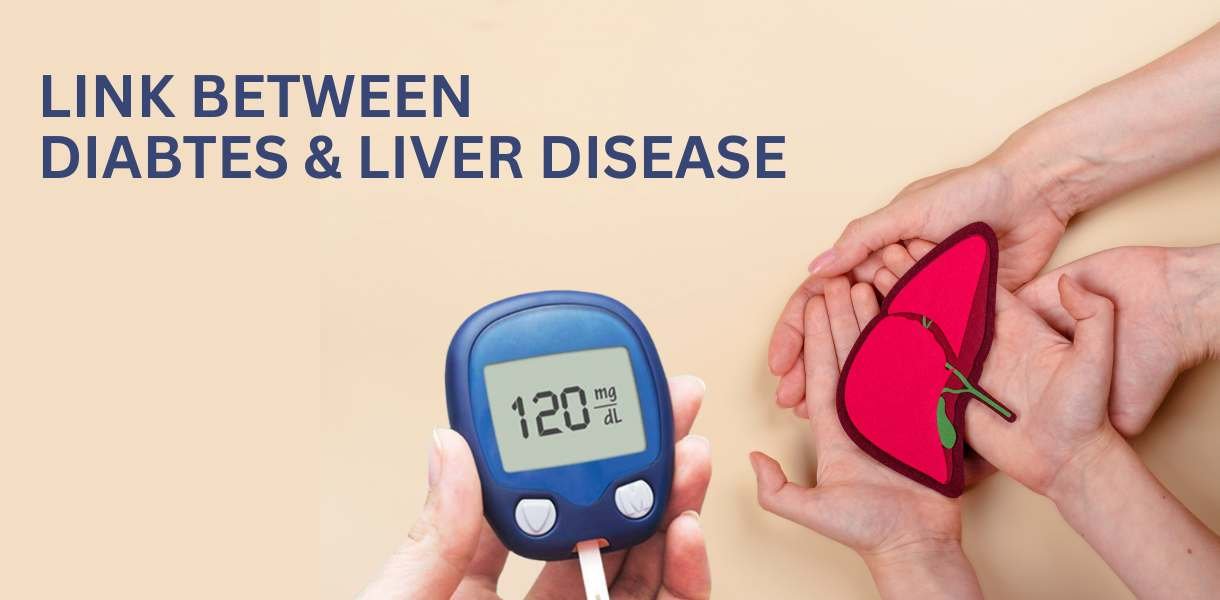Understanding the Link Between Diabetes and Liver Disease
Diabetes is a chronic condition that affects millions of individuals across India. While most people are aware of its impact on blood sugar levels, fewer understand how closely it’s connected to liver health. The link between diabetes and liver disease is both strong and often overlooked. If you’re managing diabetes, it’s crucial to monitor your liver function regularly.
The Connection: How Diabetes Affects the Liver
The liver plays a vital role in regulating blood sugar by storing and releasing glucose as needed. In individuals with diabetes, especially type 2 ; the liver may become overwhelmed by excess fat and insulin resistance, leading to non-alcoholic fatty liver disease (NAFLD). This condition is now one of the most common liver disorders in people with diabetes.
According to recent studies, over 50% of individuals with type 2 diabetes also have some form of liver disease, often without any early symptoms. Over time, if left untreated, NAFLD can progress into non-alcoholic steatohepatitis (NASH), liver fibrosis, cirrhosis, and even liver cancer.
Why You Should Care About the Link Between Diabetes and Liver Disease
The link between diabetes and liver disease is not just medical jargon – it has real-life consequences. When liver function is compromised, it affects how the body processes insulin and glucose, worsening blood sugar control. This leads to a dangerous cycle of liver damage and poor diabetes management.
If you are diabetic and experiencing fatigue, unexplained weight gain, or upper abdominal discomfort, it’s time to consult a Liver Specialist in Gurgaon. Early diagnosis and lifestyle changes can make a significant difference in halting disease progression.
Key Risk Factors That Connect the Two Conditions
Several factors increase the risk of liver disease in people with diabetes:
- Obesity or Overweight: Extra fat increases the likelihood of fat deposits in the liver.
- High Cholesterol & Triglycerides: These increase the risk of liver inflammation.
- Poor Blood Sugar Control: Persistent high glucose levels contribute to insulin resistance in liver cells.
- Sedentary Lifestyle: Lack of physical activity is a major contributor to both conditions.
Dr. Mukesh Nandal, Senior Consultant at Narayana Hospital, Gurgaon and Atharva Polyclinic, Sector 10A, Gurgaon, emphasizes that prevention and early detection are key. Regular screening for liver function should be part of routine diabetic care.
How to Protect Your Liver if You Have Diabetes
Managing the link between diabetes and liver disease begins with adopting a healthy lifestyle. Here are essential steps you can take:
1. Regular Monitoring
Visit your healthcare provider for regular liver function tests and ultrasound screenings. If you live in Delhi NCR, consider scheduling a consultation with a reputed Liver Specialist in Gurgaon like Dr. Mukesh Nandal.
2. Eat a Balanced Diet
A liver-friendly diet includes plenty of vegetables, lean proteins, whole grains, and healthy fats. Avoid sugary foods, processed items, and alcohol, which can worsen liver damage.
3. Stay Active
At least 30 minutes of moderate exercise daily can significantly reduce liver fat and improve insulin sensitivity.
4. Manage Blood Sugar Levels
Work with your diabetologist to maintain optimal HbA1c levels. Poorly managed diabetes is a direct risk factor for liver complications.
5. Avoid Unnecessary Medications
Overuse of certain medications or herbal supplements can stress the liver. Always consult a healthcare provider before adding any new treatments.
When to See a Liver Specialist
If you are diabetic and noticing signs like jaundice, persistent fatigue, abdominal swelling, or dark urine, it’s time to act. These may be signs of advanced liver involvement. A Liver Specialist in Gurgaon, such as Dr. Mukesh Nandal, can help diagnose and manage liver issues early.
Dr. Nandal offers expert consultation at:
-
Narayana Hospital, Gurgaon
-
Atharva Polyclinic, Sector 10A, Gurgaon
He uses advanced diagnostic tools and personalized care plans tailored to each patient’s needs.
Conclusion
Understanding the link between diabetes and liver disease is crucial for long-term health. While diabetes is already a challenging condition, adding liver disease to the equation can lead to severe complications if not managed properly.
The good news? With early intervention, regular monitoring, and the right guidance from specialists like Dr. Mukesh Nandal, patients can live healthier, more fulfilling lives. If you or your loved ones are struggling with diabetes, don’t ignore the liver—treat it as an essential part of your diabetes care plan.
Disclaimer:
The information provided in this content is for educational and informational purposes only and is not intended to replace professional medical advice, diagnosis, or treatment. Always consult your doctor or a qualified healthcare professional with any questions you may have regarding a medical condition. Do not ignore or delay seeking medical advice based on something you have read here.


